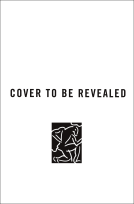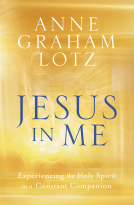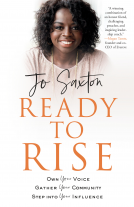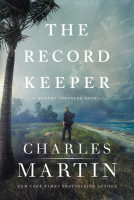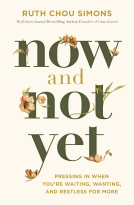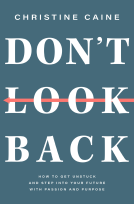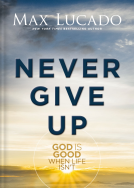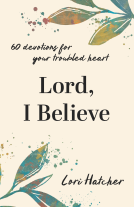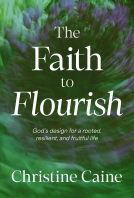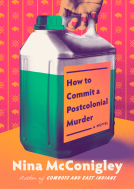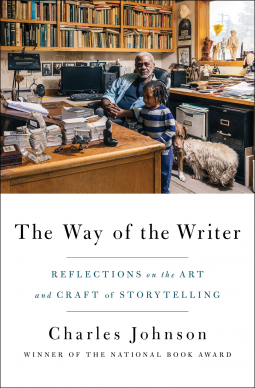
The Way of the Writer
Reflections on the Art and Craft of Storytelling
by Charles Johnson
This title was previously available on NetGalley and is now archived.
Send NetGalley books directly to your Kindle or Kindle app
1
To read on a Kindle or Kindle app, please add kindle@netgalley.com as an approved email address to receive files in your Amazon account. Click here for step-by-step instructions.
2
Also find your Kindle email address within your Amazon account, and enter it here.
Pub Date Dec 06 2016 | Archive Date Dec 06 2016
Description
An award-winning novelist, philosopher, essayist, screenwriter, professor, and cartoonist, Charles Johnson has devoted his life to creative pursuit. His 1990 National Book Award-winning novel Middle Passage is a modern classic, revered as much for its daring plot as its philosophical underpinnings. For thirty-three years, Johnson taught and mentored students in the art and craft of creative writing. The Way of the Writer is his record of those years, and the coda to a kaleidoscopic, boundary-shattering career.
Organized into six accessible, easy-to-navigate sections, The Way of the Writer is both a literary reflection on the creative impulse and a utilitarian guide to the writing process. Johnson shares his lessons and exercises from the classroom, starting with word choice, sentence structure, and narrative voice, and delving into the mechanics of scene, dialogue, plot and storytelling before exploring the larger questions at stake for the serious writer. What separates literature from industrial fiction? What lies at the heart of the creative impulse? How does one navigate the literary world? And how are philosophy and fiction concomitant?
Luminous, inspiring, and imminently accessible, The Way of the Writer is a revelatory glimpse into the mind of the writer and an essential guide for anyone with a story to tell.
Available Editions
| EDITION | Other Format |
| ISBN | 9781501147210 |
| PRICE | $24.00 (USD) |
Average rating from 26 members
Featured Reviews
 Michelle K, Reviewer
Michelle K, Reviewer
The Way of the Writer
Reflections on the Art and Craft of Storytelling
by Charles Johnson
Scribner
Nonfiction (Adult)
Pub Date 06 Dec 2016
I am voluntarily reviewing a copy of The Way of the Writer through the publisher and Netgalley:
This book is the reflections of award winning novelist Charles Johnson whose novel Middle Passage is classified as a modern day classic.
The author talks about the six unpublished novels he worked on from 1970-1972 until his debut novel Faith and the Good Thing.
Charles Johnson talks about the importance of having a “writing place.”
He also talks about his work as a cartoonist.
Later on Johnson goes on to describe the process of writing.
I give The Way of the Writer five out of five stars.
Happy Reading.
 Carol K, Reviewer
Carol K, Reviewer
I've read umpteen books on the art and craft of writing, but I couldn't resist one more. Charles Johnson is a Book Award winner, university professor, writing teacher, and one of America's preeminent scholars on literature and race, and more. His credentials are as numerous as Abraham's descendants.
“Why do we write fiction?” Johnson asks. “Why do we read it? Why are stories so important to us?”
The fact that fiction “humanizes” is something all careful readers know. Albert Camus is quoted: “Feelings and images multiply a philosophy by ten. People think only in images… If you want to be a philosopher, write novels.” There's more to this, of course, but if I tell you everything that's in the book, you wouldn't need to read it, and you'd be missing out on some great insights.
Confession: I skimmed the opening chapters, full of autobiography, in order to zero in on the parts of most interest to me. Namely, what gives a story the power and magic to consume readers and make everything disappear but the story?
Some of the answers to Johnson's questions, posed as a teacher to students, are already familiar to writers. Others are not as commonly followed as I’d like – in fact, in fiction workshops, people who do this are likely to be clobbered: EXPAND YOUR VOCABULARY. Read the dictionary. The writer won’t use most of the words, but “a large vocabulary is comparable to an artist with many colors on his palette. He doesn’t use all of them on a single canvas, but he always has the right shade available when he needs it.” Now I feel entitled to use some of those ten-dollar words I picked up from Zane Grey in my childhood. Lugubrious. Taciturn. Pusillanimous. Woot!
In an era of texting and “the truncated language Twitter, the anonymity of the Internet, and the triumph of hip-hop and gangster rap,” Johnson writes, “does anyone ever talk anymore about taste?” Read the book for more on that timely topic.
Another suggestion I love: filling cheap, unlined spiral notebooks with notes on “literally everything I experience or think worth remembering during the day; I jot down images, phrases used by my friends, fragments of thoughts, overheard dialogue, anything I flag in something I’ve read that strikes me for its sentence form or memorable qualities, its beauty or its truth.” I’ve done this for years, and I usually find these notations more accessible than what I save on a computer. (That’s a long story.) Johnson has hundreds of these notebooks, 43 years of accumulation“I save everything; it’s shameless” – but he does revisit them, hunting for thoughts, images, ideas, and “I can always count on finding some sentence, phrase, or idea I had, say, twenty or thirty years ago that is perfect for a story or novel in progress.”
The chapter on voice is mostly familiar advice, but with examples we may not have seen before.
Chapter 23, “The Wounds That Create Our Work,” is worth visiting. It is the wound, Gardner says, that makes the writer “driven.” Johnson emphasizes that “happy, well-adjusted children” or adults can create great art, too. The suffering artist isn’t the only kind of artist.
I own the John Gardner classic, “The Art of Fiction,” and Johnson quotes from it all throughout this book, but he quotes philosophers as well, e.g. Sartre, Hegel, Nietzsche, Kierkegaard, Herbert Spiegelberg, and more. There’s David Hume and his denial of the self’s existence. Those who find philosophy daunting can look to other chapters and still get their money’s worth from this book.
“Buddhists are naturally fans of science fiction,” Johnson says. Why? Buddhism, philosophy, and science fiction “as well as science itself”challenge our views and transform our perception.
Chapter 36, “Writing Well Is Thinking Well,” especially speaks to me. Too many excerpts would relieve you of the need to buy this book, but let me assure you, it’s packed with great lines. “With the first draft, every page is like a prayerin that draft we put something on paper just to determine whether it is worth our continuing to work on it.”
Chapter 42, “The Truth-Telling Power of Fiction,” is especially empowering for me. I believe the truth can be *best* expressed in the guise of fiction, sometimes. This chapter is packed with quotes (William James, for one), and the idea that each sentence is a unit of energy.
Johnson himself is not a product of the university writing workshop approach to teaching writing, notes Marc C. Conner in the Afterword. Johnson took a medieval apprentice model, comparing the training of a writer to that of a jazz musician or martial artist.
Chapter 32, “The Art of Book Reviewing,” is a special favorite for me. Johnson reached a point, after reviewing so many authors, where he could “let reviewing become one of the things I’d done enough of” and could final “let go.” (I’m very close to this point myself.) I applaud his view that “a serious writer has an obligation to respond to and be engaged with other contemporary authors.”
And I love this: “a well-done book review can be a thing of beauty as memorable as the book under reviewand in some cases more engaging and memorable than the book being discussed.”
My habit of quoting extensively from the text when I review a book is vindicated here: “that way a reader could directly experience the work without me, the reviewer,” as a middle man mediating “or standing in the way of” readers encountering the author’s own words, thoughts, and prose style.
Here’s one for the one-star bandits to internalize: “I always tried to review the work of others with the kind of mindfulness, sympathy, compassion, and care that I hoped reviewers would bring to my own literary creations.”
In all, this is a thoughtful and fascinating, inspiring and encouraging book for writers. We can never have too many books on writing, right?
 Paromjit H, Reviewer
Paromjit H, Reviewer
This is an outstanding guide that overviews the art of writing. It is the culmination of a career as an award winning novelist and over thirty years experience of teaching and mentoring students on the components of creative writing and the process of writing. This is the author's record of those years, the teaching strategies, the discussions of what constitutes literature and a practical guide on how to write.
It begins with a look at the life of the author. For those seeking to become writers there are useful nuggets of help, such as developing a large vocabulary from which the able writer therefore has much more to draw on. Techniques for capturing useful experiences, overheard conversations, creative thoughts, like a notebook. Johnson outlines how he studied to be a cartoonist with Lawrence Lariar. He focuses on the joy of the creative impulse, where it may come from and how it might be usefully bought to fruition. The motivation that leads to our own unique writings and building the perseverance and confidence to bring it to completion.
This is a book for those who are interested in knowing more about writing in general, which can help enrich their experience of reading and evaluating writing, and those who want a practical and philosophical resource and guide for their own writing and the encouragement to keep writing. Thanks to Scribner for an ARC.
As a writer I really enjoyed this book of reflections on 'the art and craft of storytelling' by Charles R. Johnson (which I had never heard of before, but will definitely be looking up now!). It was a fascinating book full of deep thoughts and reflections on writing, the writer, storytelling, craft, art, philosophy, etc. It wasn't a moralistic book telling you what to do and what you should be to become a writer, but reading this book makes you question yourself and your craft. It is a great way to self-reflect. I couldn't follow through all the chapters on philosophy, but it was very educative and encouraged me to keep expanding my mind and knowledge to become a better writer.
Readers who liked this book also liked:
Nina McConigley
General Fiction (Adult), Literary Fiction, Multicultural Interest
